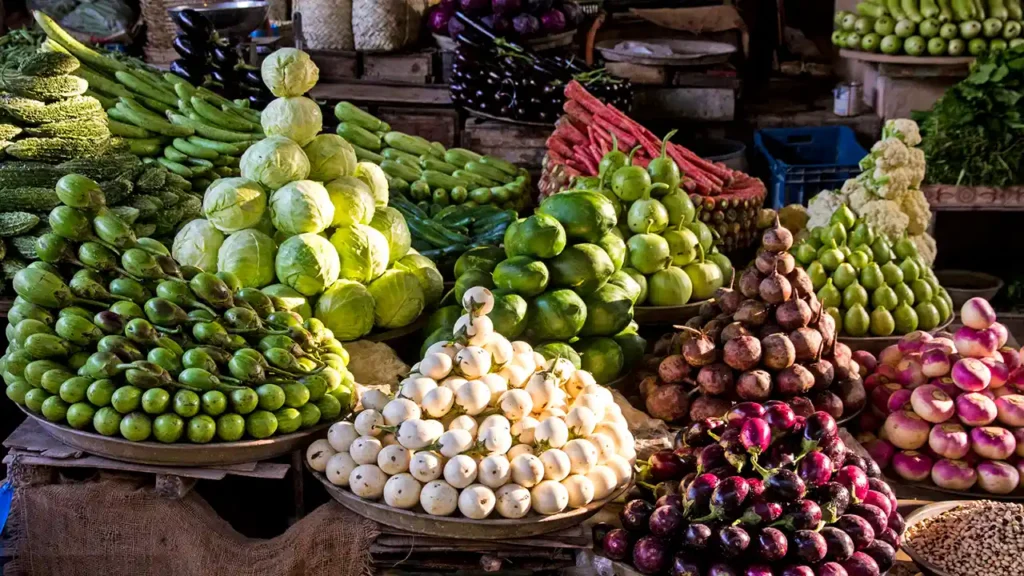- Web
- Feb 05, 2026
Households get minor respite as weekly inflation softens in Pakistan
-

- Web Desk
- Sep 13, 2025

ISLAMABAD: Pakistan’s short-term inflation showed a slight decline during the outgoing week, with the Sensitive Price Indicator (SPI) edging down by 0.02 percent compared to the previous week, according to data released by the Pakistan Bureau of Statistics (PBS) on Friday.
However, compared to the same period last year, prices were still 5.03 percent higher, showing how cost pressures continue to linger despite the recent weekly ease.
Mixed trend in essential commodities
PBS compiles the SPI on a weekly basis to monitor movements in the prices of essential goods. The index tracks 51 key items collected from 50 markets across 17 major cities of the country.
Out of 51 tracked essential items, prices of 22 items rose, 4 went down and 25 remained unchanged. The biggest weekly relief was seen in wheat flour, which became 9.80 percent cheaper, while chicken dropped by 3.20 percent, bananas by 3.10 percent and gur by 0.30 percent.
Conversely, several kitchen staples turned costlier. Onion prices surged 12.17 percent, tomatoes jumped 10.47 percent, potatoes went up 3.57 percent, and LPG prices rose 3.10 percent. Smaller yet notable increases were also recorded in rice (1.63 percent), eggs (1.52 percent), sugar (1.46 percent), pulse moong (1.33 percent), pulse mash (1.28 percent), firewood (0.24 percent), lawn printed fabric (0.19 percent) and shirting (0.18 percent).
Yearly snapshot shows steep rise in key food items
Looking at the year-on-year trend, the SPI reflected a 5.03 percent rise. Some items showed major drops over the year, such as onions falling 40.28 percent, garlic 26.69 percent, electricity charges 21.37 percent, pulse mash 20.89 percent, pulse gram 20.43 percent, branded tea 17.93 percent, potatoes 15.70 percent, pulse masoor 4.97 percent and rice IRRI-6/9 3.05 percent.
On the other hand, several essential items became much more expensive over the past year. Tomatoes have almost doubled with a 90.07 percent spike, while ladies sandals soared 55.62 percent, gas charges jumped 29.85 percent, sugar rose 29.33 percent, wheat flour climbed 18.65 percent, pulse moong gained 15.17 percent, gur increased 13.08 percent, beef 11.92 percent, firewood 11.73 percent, vegetable ghee (2.5 kg pack) 11.26 percent, vegetable ghee (1 kg pack) 10.82 percent and lawn printed fabric 7.92 percent.
Weekly price changes
| Item | Change (%) | Direction |
| Wheat flour | -9.80 | Decrease |
| Chicken | -3.20 | Decrease |
| Bananas | -3.10 | Decrease |
| Gur | -0.30 | Decrease |
| Onions | +12.17 | Increase |
| Tomatoes | +10.47 | Increase |
| Potatoes | +3.57 | Increase |
| LPG | +3.10 | Increase |
| Rice | +1.63 | Increase |
| Eggs | +1.52 | Increase |
| Sugar | +1.46 | Increase |
| Pulse moong | +1.33 | Increase |
| Pulse mash | +1.28 | Increase |
| Firewood | +0.24 | Increase |
| Lawn printed | +0.19 | Increase |
| Shirting | +0.18 | Increase |
Yearly price changes
| Item | Change (%) | Direction |
| Onions | -40.28 | Decrease |
| Garlic | -26.69 | Decrease |
| Electricity charges (Q1) | -21.37 | Decrease |
| Pulse mash | -20.89 | Decrease |
| Pulse gram | -20.43 | Decrease |
| Tea (branded) | -17.93 | Decrease |
| Potatoes | -15.70 | Decrease |
| Pulse masoor | -4.97 | Decrease |
| Rice (IRRI-6/9) | -3.05 | Decrease |
| Tomatoes | +90.07 | Increase |
| Ladies sandals | +55.62 | Increase |
| Gas charges (Q1) | +29.85 | Increase |
| Sugar | +29.33 | Increase |
| Wheat flour | +18.65 | Increase |
| Pulse moong | +15.17 | Increase |
| Gur | +13.08 | Increase |
| Beef | +11.92 | Increase |
| Firewood | +11.73 | Increase |
| Vegetable ghee (2.5 kg) | +11.26 | Increase |
| Vegetable ghee (1 kg) | +10.82 | Increase |
| Lawn printed | +7.92 | Increase |
Impact on different income groups
The lowest income group saw their weekly SPI drop by 0.13 percent. However, on a yearly basis, inflationary impact was felt across all income brackets, with the SPI rising between 4.15 percent and 5.85 percent. The lowest income group recorded the highest yearly jump of 5.85 percent.
Meanwhile, the average price of Sona urea rose to Rs4,388 per 50 kg bag, up 0.21 percent from last week but down 5.98 percent compared to last year. The average cement price stood at Rs1,408 per 50 kg bag, slightly lower by 0.04 percent from last week and 4.55 percent lower than last year’s price.




